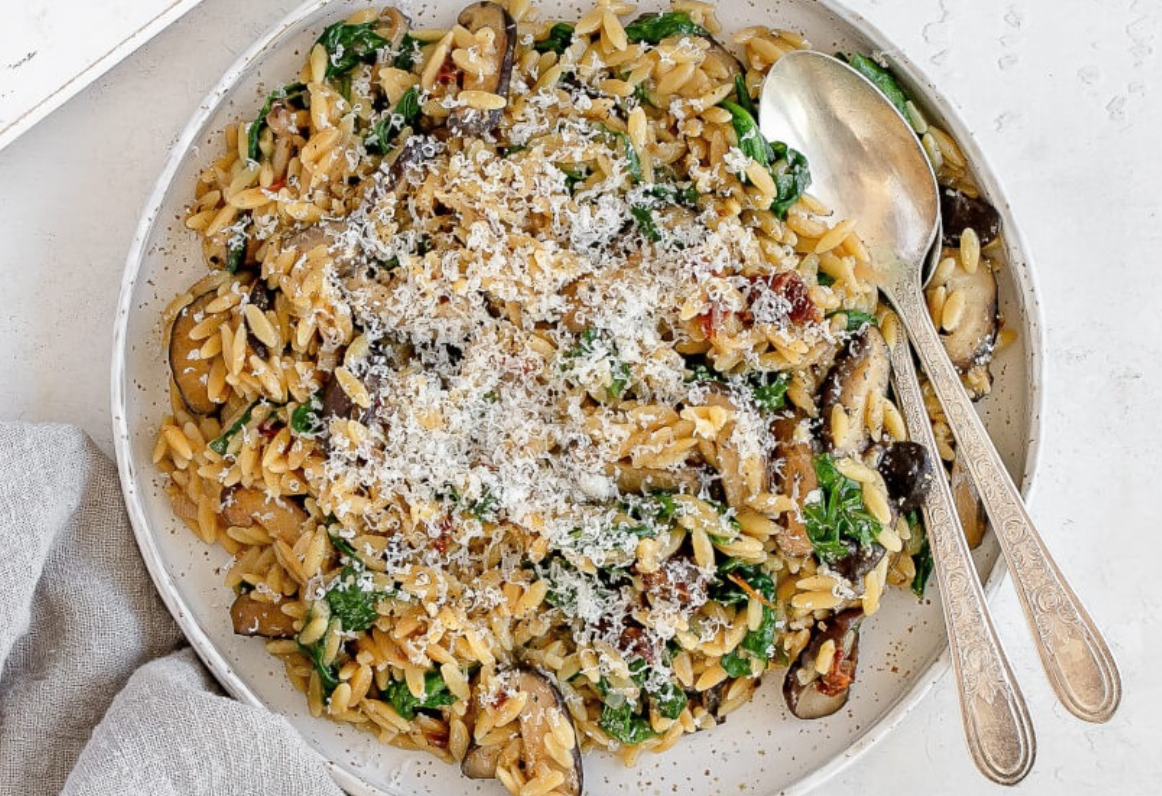The Beginner’s Guide to the Mediterranean Diet: Simple Steps for a Healthier You
/We talk a lot about nutrition and eating plans with our fitness retreat guests and our health coaching clients at Vita Vie Retreat. When it comes to healthy eating plans, the Mediterranean Diet is widely regarded as one of the best. It's not just a diet; it’s a sustainable lifestyle that promotes long-term health, delicious food, and balanced living. If you’ve been curious but don’t know where to start, this beginner's guide will simplify it for you.
By the end, you’ll have easy action steps to get started and an exciting resource to make your Mediterranean journey even easier: the Mediterranean Diet Refresh.
What is the Mediterranean Diet?
The Mediterranean Diet is inspired by the traditional eating habits of countries bordering the Mediterranean Sea. It’s rich in:
Fruits and vegetables
Whole grains
Healthy fats, especially olive oil
Lean proteins like fish and legumes
Herbs and spices for flavor instead of salt
Unlike many diets, it’s less about restriction and more about eating nourishing, flavorful foods.
Who is the Mediterranean Diet For?
The Mediterranean diet isn’t a one-size-fits-all “program” — it’s a flexible lifestyle approach that can benefit many people. It may be a great fit if you:
Want a balanced approach to eating – no extreme rules, just fresh, whole foods.
Prefer variety – it celebrates plenty of flavors, colors, and cultural dishes.
Value long-term health – research links it to heart health, better energy, and longevity.
Like a little flexibility – it’s not about perfection; enjoying bread, pasta, or wine in moderation still fits.
Are tired of fad diets – instead of quick fixes, this is a sustainable way to eat for life.
Benefits of the Mediterranean Diet
Research shows the Mediterranean Diet is linked to:
1. Improved Heart Health
The Mediterranean diet is rich in heart-healthy fats, particularly from olive oil, nuts, and fatty fish. These healthy fats help lower LDL (“bad”) cholesterol, reduce inflammation, and improve overall cardiovascular function. Paired with abundant fruits, vegetables, and whole grains, this way of eating can lower blood pressure, reduce the risk of heart attack, stroke, and support long-term heart health.
2. Lower Risk of Chronic Diseases
A diet centered on whole foods, healthy fats, lean proteins, and fiber-rich produce can reduce your risk of chronic conditions such as type 2 diabetes, metabolic syndrome, and certain cancers. The emphasis on antioxidants and anti-inflammatory nutrients helps protect your cells from damage, supports immune function, and contributes to overall wellness.
3. Better Brain Function and Mental Clarity
The Mediterranean diet supports cognitive function and brain health through omega-3 fatty acids, polyphenols, and antioxidants found in fish, olive oil, nuts, and colorful fruits and vegetables. Studies suggest it may reduce the risk of cognitive decline and improve memory, focus, and mental clarity, making it a brain-friendly approach to eating.
4. Weight Management Without Extreme Measures
Unlike restrictive diets, the Mediterranean approach encourages a balanced, nutrient-dense eating pattern that can naturally support weight management. Its focus on satisfying whole foods — protein, fiber, and healthy fats — helps control appetite and reduce cravings, making it easier to maintain a healthy weight without counting calories obsessively or feeling deprived.
5. A More Satisfying and Enjoyable Way of Eating
The Mediterranean diet emphasizes flavorful, fresh ingredients and simple cooking techniques that make meals enjoyable and satisfying. Herbs, spices, olive oil, and fresh produce create delicious combinations that don’t feel like a “diet.” This approach encourages sustainable, long-term habits rather than temporary restrictions, making healthy eating a lifestyle you look forward to.
What a Day of Eating Looks Like on the Mediterranean Diet
Breakfast:
Greek yogurt topped with fresh berries, a drizzle of honey, and a sprinkle of chopped walnuts
Lunch:
Grilled chicken salad with mixed greens, cherry tomatoes, cucumber, olives, feta cheese, and a light olive oil vinaigrette
Snack:
A handful of almonds or sliced veggies with hummus
Dinner:
Baked salmon with roasted vegetables (like zucchini, bell peppers, and eggplant) served over a small portion of quinoa or brown rice
Dessert (optional):
A few slices of fresh fruit or a small square of dark chocolate
Beginner-Friendly Tips to Transition to the Mediterranean Diet
1. Start Simple
Don’t overhaul your entire pantry at once. Begin by incorporating more fruits, vegetables, and whole grains into your current meals.
2. Choose Olive Oil
Replace butter or other cooking oils with high-quality extra virgin olive oil for a simple, healthy swap.
3. Focus on Lean Proteins
Include fish or plant-based proteins like lentils, chickpeas, or tofu a few times a week.
4. Add Flavor with Herbs and Spices
Use fresh or dried herbs to season your meals—think oregano, basil, garlic, and paprika.
5. Eat the Rainbow
Add colorful vegetables to your plate, and aim for variety to maximize nutrients.
6. Pick Healthy Carbohydrates & Whole Grains
Brown rice, potatoes, whole grain breads, quinoa, and farro are healthy choices to explore.
7. Include Balanced Lifestyle Practices
The Mediterranean Diet, while focused on a balanced approach to nutrition, also focuses on lifestyle habits such as movement, connection, stress management, sleep, and general enjoyment. Health is interconnected and so is your metabolism. Begin to explore healthy habits that feel good for your lifestyle.
Read Our Blog Post: Mediterranean Diet Food List with 2 Day Sample Meal Plan
Taking Action
Pick one Mediterranean-inspired recipe to try this week, such as grilled salmon with a side of roasted veggies and quinoa.
Add a daily serving of fresh fruit to your breakfast or as a snack.
Swap refined grains for whole grains like whole wheat pasta, brown rice, or farro.
Replace sugary drinks with water, herbal tea, or a splash of lemon water.
Try added herbs and spices to enhance the flavor of your dishes.
The Mediterranean Diet is more than a diet—it’s a way to embrace better health, delicious meals, and balance in your life. With small, simple changes and the right tools, you can create a sustainable lifestyle you’ll love.
Are you ready to get started? Click here to grab your Mediterranean Diet Blueprint and take the first step toward a healthier, more vibrant you!
Keep Going: Your Next Steps
Want to dive deeper? Here are a few resources to keep the momentum going:
📌 Related Posts
5 Reasons The Mediterranean Diet Is Beneficial for Weight Loss
How The Mediterranean Diet Supports Healthy Blood Sugar (even if you’re not diabetic)
✓ Done-for-You Guides
The Mediterranean Diet Refresh → done-for-you fully guided program
Mediterranean Recipe Bundle → packed full of recipes from breakfasts and snacks to meals
SAY HELLO TO HEALTHY WEIGHT LOSS WITH THE MEDITERRANEaN DIET REFRESH
One of our most complete programs, the Mediterranean Diet is touted as one of the healthiest in the world. It’s naturally anti-inflammatory and promotes a balanced lifestyle that you can live with for good. With our program, you’ll enjoy:
9 week guided journey
Over 200+ recipes
Done-for-you meal plans
Weight loss guidance
Customization for your own lifestyle
Progress tracking & more!






















